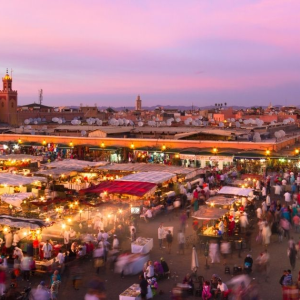Budgeting Tips for Expats in Dubai
Moving to Dubai comes with the thrill of new beginnings — a promising job, beautiful skyline views, tax-free salaries, and endless luxury all around. But very quickly, many expats discover the flip side of life in this glamorous city: it’s expensive. From rent and groceries to weekend plans and social pressure, it’s surprisingly easy to spend more than you earn — without even realizing it.
Whether you’re a fresh arrival or have been here for a few years, managing your money wisely in Dubai can be the difference between building wealth and living paycheck to paycheck. So, how do you stay smart with your finances in a city that runs on indulgence?
This guide breaks down realistic, no-fluff budgeting tips that can help expats survive and thrive — without sacrificing lifestyle or peace of mind.

Why Budgeting in Dubai Feels So Hard
Dubai’s image as a luxury hub isn’t just a stereotype — it’s reality. The city encourages spending. You’re surrounded by high-end malls, beach clubs, fine dining, and five-star staycations. Whether it’s a spontaneous brunch, designer deal at Dubai Mall, or booking that Maldives trip everyone’s talking about — temptations are everywhere.
But beneath the flash, the cost of living is serious. Rent can consume 30% to 50% of your income. School fees, car loans, and visa renewals can sneak up fast. On top of that, many expats send money back home, meaning there’s even more pressure to make every dirham count.

So, budgeting isn’t just a good habit here — it’s survival.
Step 1: Know Where Your Money Goes
Before you can budget, you need to track. Most people think they know what they’re spending on. But in Dubai, small habits add up fast — daily coffee runs, ride-hailing apps, weekend movie nights, and monthly subscriptions.
Start by noting down every dirham you spend for one month. You can use budgeting apps like YNAB, Spendee, or even a simple Excel sheet. Categorize your expenses: rent, utilities, groceries, transport, eating out, entertainment, shopping, remittances, and savings.
Once you have the numbers, review them honestly. You’ll be surprised how much goes into lifestyle spending versus essentials.

Step 2: Set a Realistic Budget — Not a Fantasy One
Many expats try to cut down aggressively at first, but then give up because the budget wasn’t realistic. A better approach is to understand your monthly income, subtract fixed costs, and then allocate spending categories for what’s left.
A good budgeting rule is the 50-30-20 method:
- 50% for Needs – Rent, groceries, bills, transport
- 30% for Wants – Dining, travel, shopping, gym, entertainment
- 20% for Savings & Debt – Emergency fund, investments, loans
This model keeps things flexible without ignoring the importance of enjoyment and saving. You don’t move to Dubai just to live on instant noodles, after all.
Step 3: Tame the Rent Monster
Rent is often the biggest monthly expense. Many people end up living in areas way above their means just for prestige or convenience. But with some smart decisions, you can save thousands of dirhams each year.
If you’re single or a couple, consider flat-sharing or living in emerging communities like JVC, Al Nahda, or Discovery Gardens. If you have a family, check out options further from the city center that offer more space at lower prices.
Also, try negotiating rent with your landlord — especially if you’re renewing your lease. If you can pay fewer cheques, you may even get a discount.
Use RERA’s rent calculator to know if your current rent is within fair market range.
Step 4: Be Smart with Food and Dining
Dubai is a food lover’s paradise, but dining out daily can destroy your budget. That avocado toast and iced latte every morning? That’s easily AED 1,000+ a month.
Cutting back doesn’t mean you stop enjoying. Try this:
- Cook at home more often. Groceries from Carrefour, Lulu, or Union Coop are cost-effective.
- Use apps like The Entertainer, Zomato Pro, or Smiles to get 2-for-1 dining deals.
- Opt for weekday lunches and early dinners, where offers are better and crowds are fewer.
- Follow food bloggers and deal pages — many hidden gems serve great food at wallet-friendly prices.
Set a monthly dining-out budget and stick to it. Enjoy the luxury, just don’t let it eat your income.
Step 5: Get Around Without Going Broke
Transport is another hidden expense. While owning a car feels convenient, it comes with fuel, parking, Salik, maintenance, and loan costs. If you’re not doing long commutes or school runs, RTA’s Metro, tram, and buses are affordable and reliable.
Taxis and Uber rides add up. Use Careem’s Hala taxis or carpool where possible. Some communities offer shuttle buses to major landmarks and metro stations.
If you must drive, consider buying a used car instead of leasing or financing a brand-new one.
Step 6: Don’t Ignore Your Emergency Fund
Dubai offers zero job security without warning — it’s harsh but true. You can lose your job and legally be required to leave the country within 30 days unless you get rehired.
That’s why every expat must have an emergency fund — at least 3 to 6 months of living expenses saved up in an easily accessible account.
This fund isn’t for holidays or shopping. It’s for rent, bills, groceries, and flights home if things go south.
Start by saving a small amount every month — even AED 500 is better than nothing.
Step 7: Say No to Peer Pressure Spending
A lot of overspending in Dubai happens not out of need, but because of FOMO — fear of missing out. You’ll get invited to brunches, yacht parties, staycations, birthday bashes, and endless group plans. It feels like everyone else is always out, always spending.
But the truth is, many are swiping credit cards and silently dealing with debt. Don’t fall into that trap.
It’s okay to say no. Choose the outings that genuinely make you happy. Suggest budget-friendly alternatives like potlucks, beach picnics, game nights, or walks at Dubai Marina or Creek Harbour.
Real friends won’t judge you for skipping a fancy dinner. And you’ll thank yourself when your bank account looks healthier.

Step 8: Learn About Taxes, Savings, and Investments
While Dubai is tax-free in terms of income, there are indirect costs like VAT (5%), service charges, and tourism fees. Understanding where your money goes helps you plan better.
If you’re saving money for long-term goals, don’t just let it sit in your bank account. Learn about fixed deposits, international mutual funds, or real estate back home.
Consider talking to a trusted financial advisor — but be careful of fake “wealth coaches” on Instagram. Research, ask questions, and never invest blindly.
Step 9: Send Money Home Wisely
If you’re supporting family back home, make sure you’re not losing money on exchange rates and transfer fees. Use remittance services like Wise, Lulu Exchange, Al Ansari, or Western Union with the best daily rates.
Try to schedule your transfers on days with strong exchange rates and lower fees. Some apps even offer loyalty points and cashback.
Also, be clear with your family about what you can realistically send. Overcommitting puts unnecessary pressure on your own stability.
Step 10: Review, Adjust, Repeat
Budgeting isn’t a one-time exercise. Your income, expenses, and goals will change — and your budget should grow with you.
Set a reminder every month to review your spending, adjust your plan, and reflect on what worked or failed. The goal isn’t perfection — it’s awareness.
Over time, you’ll gain control and confidence in your financial journey.
Final Thoughts: Live Well, Not Loud
Living in Dubai as an expat is a rewarding experience — but it doesn’t need to be flashy to be meaningful. You can enjoy the beaches, skyline views, diverse food, and quality life without overspending or competing.
Budgeting isn’t about being cheap. It’s about being smart, intentional, and free from money anxiety.
So whether you’re here for a few years or planning to stay long-term, make peace with your income, spend wisely, and build a life that feels rich — not just one that looks rich.
Follow us on instagram: UAE STORIES













